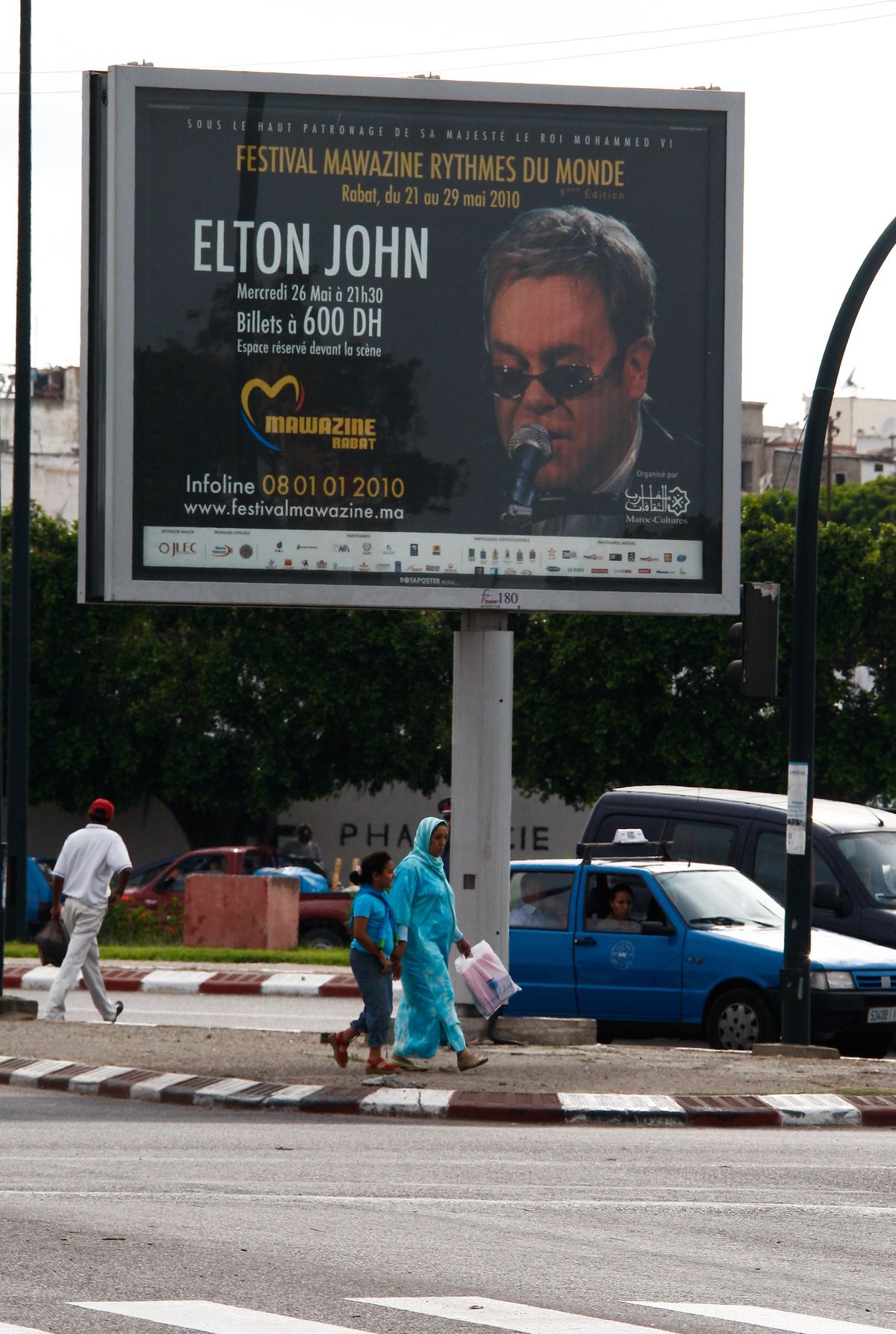Morocco festival features Elton John
Gay star’s visit angers nation’s Muslim leaders

RABAT, Morocco – A concert by Elton John has tested the limits of Morocco’s drive for modernity, probing this Muslim nation’s complex and ambiguous attitudes toward homosexuality like rarely before.
Islamists in the North African kingdom were outraged by the gay pop star’s visit, while the royal palace, government and his many fans backed his appearance Wednesday night.
No riots or violence was reported, said Rabat’s governor, Hassan Amrani. Authorities had beefed up security with thousands of police and plainclothes officers.
In a sign of John’s popularity, several thousand of his fans appeared to know his lyrics by heart even though most people in this French and Arabic speaking country know little or no English.
“He is a very big name in the music world, he’s a great artist. And his private life is nobody’s business,” said Leila Hassan, a 43-year-old housewife.
The tension over the concert is part of a tussle between conservatives and modernizers in a nation that criminalizes homosexuality but has long been famous for a swinging party scene. Morocco has attracted gay celebrities such as designer Yves Saint Laurent and writer Paul Bowles, and recently saw the launch of its first gay magazine.
Across the Islamic world, strictly hidden but sometimes tacitly tolerated traditions of homosexuality are surfacing fitfully – and John’s concert is the latest litmus test.
The public dispute between organizers for the Mawazine Festival that invited John and the Justice and Development Party, or PJD, Morocco’s largest authorized Islamist group, illustrates the growing rift between Western-leaning Moroccan authorities and the more conservative Muslim movements that are on the rise in the kingdom.
“This singer is famous for his homosexual behavior and for advocating it,” said Mustapha Ramid, a leader and spokesman for the PJD, the biggest opposition party with 40 lawmakers in parliament.
“We’re a rather open party, but promoting homosexuality is completely unacceptable,” Ramid told the Associated Press in a telephone interview.
Like nearly all Arab and Muslim countries, Morocco is officially hostile to homosexuality. Homosexual practices are a crime punishable by fines and prison sentences of six months to three years. In practice, however, such penalties are almost never applied, and Morocco has a long history of leniency toward homosexuality or other practices forbidden by Islam, like drinking alcohol.
Moroccan officials dismissed the calls to ban John from performing.
“We deal with artists and intellectuals for what they do, without taking into account their private life,” said El Hassan Neffali, an organizer of the Mawazine Festival.
The festival is under the patronage of King Mohammed VI – a powerful gesture in a country that remains an absolute monarchy and where the king, whose family claims descent from Islam’s Prophet Muhammad, is also “Amir al-Mumineen,” or commander of the believers.